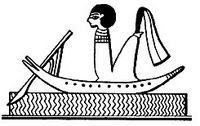Blogger questions absence of soul qualities in U.S.
Boyd writes, "Thomas Moore in Care of the Soul writes 'Money is simply the coinage of our relationship to the community and environment in which we live.' (p. 189) He goes onto say 'When money no longer serves community exchange, it becomes an obstacle to the communal flow' (p. 192). Both Gov. Brewer and CEO Blankfein’s words and actions show an utter and complete disregard for community and creating a healthy and hospitable environment in which to live. Their words reflect a racially-based, ethnocentric selfishness that rips at our sense of community and contributes to an environment characterized by hate, suspicion, exclusionism and fear. Their words rip at the soul of who we say we are as a nation."
Following another reference to Moore's book, Boyd concludes, "I speak out against people like Brewer and Blankfein, and the 'take our country back' rhetoric of the Tea Party-ers because what they represent rips at the soul of what I hope at its best our country can be, and will become. The soul of this nation is a place of welcome, a place of respect for diversity, a place of equality of rights and opportunities, and a place where there is 'liberty and justice for all'. I ache for the soul of our nation, and keep working that we might actually become who we say we are and want to be."
Labels: Care of the Soul


